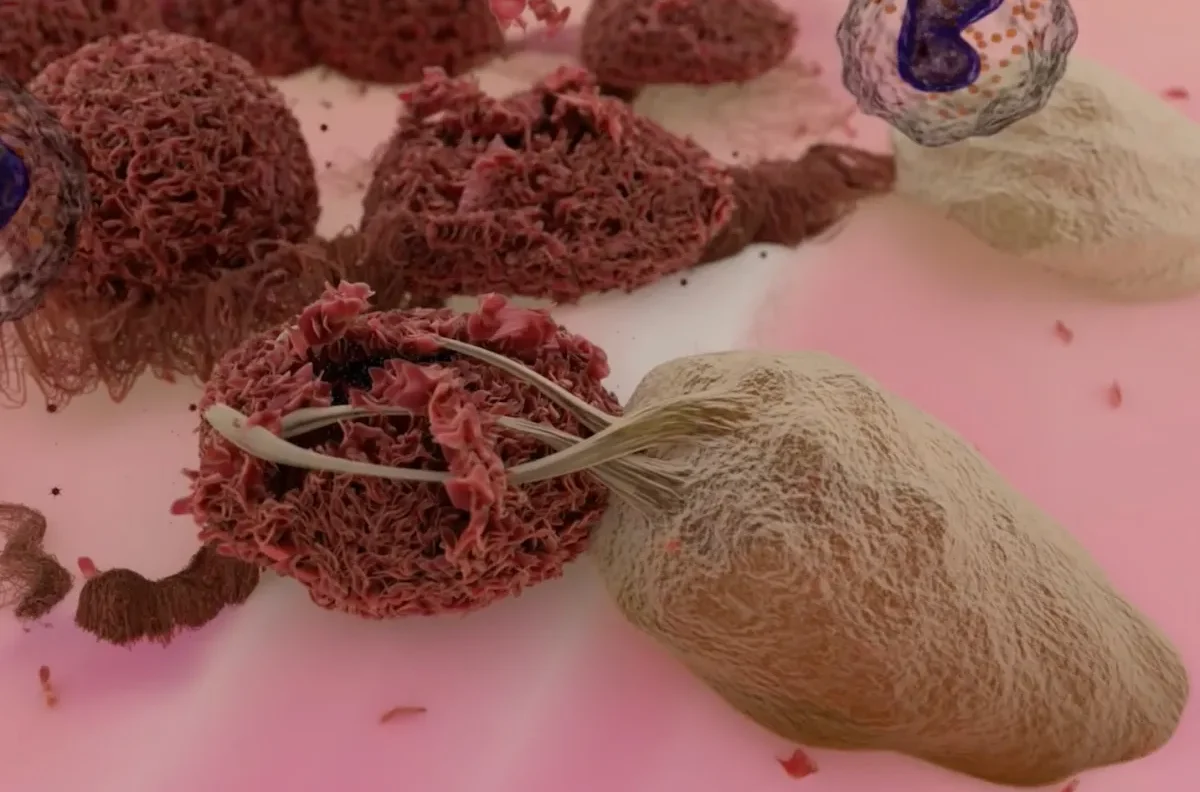Calls for Ukraine
Calls for Europe
Calls for USA

Ten years after the US Food and Drug Administration (FDA) approved the first viral therapy for the treatment of cancer, a new method for treating cancer has appeared on the horizon.
A genetically modified herpes simplex virus called RP1 has demonstrated the ability to destroy tumors in advanced melanoma, even when they are located quite deep. This is evidenced by the results of a phase 1/2 clinical trial.
During the trials, RP1 was injected directly into melanoma tumors located on the surface of the skin, under the skin, or deep inside the body, such as in the lungs or liver. In patients who responded positively to the treatment, even tumors that had not been injected with the virus shrank.
“This suggests that RP1 is not only effective against the tumors into which it was injected, but is also capable of affecting malignant cells throughout the body. This expands the potential of the therapy, as some tumors are difficult or impossible to reach for direct administration of the drug,” explains oncologist Gino Kim In from the University of Southern California.
The study results have not yet undergone independent review, but were presented at the 2025 annual meeting of the American Society of Clinical Oncology (ASCO). Interested in the preliminary data, the FDA earlier this year granted RP1 priority review status — provided it is used in combination with nivolumab immunotherapy. The combination of these two drugs has proven particularly effective against melanoma.
Of the 140 participants in the Phase 1/2 clinical trial, about one-third showed a positive response to treatment. Initially, patients received combination therapy every two weeks, but after eight cycles, they continued to receive only nivolumab for two years. In patients who responded well to treatment, tumors decreased by more than 30% in 80–90% of cases. The safety and efficacy of the viral drug were similar for both superficial and deep administration.
It is important to note that despite the use of a modified herpes virus, it does not cause herpes infection in patients. “These results are encouraging, as melanoma ranks fifth among the most common types of cancer in adults, and about half of advanced melanoma cases are resistant to existing immunotherapy methods,” says Ying. Without treatment, patients with advanced melanoma live only a few years, so the new therapy could be a lifesaver for those who have no other options.
To date, the FDA has approved only one virus-based cancer drug, Imlygic, which is used exclusively for melanoma affecting the skin or lymph nodes. The new version of the therapy, based on the HSV-1 herpes virus, is capable of delivering the drug deeper into the body.
The drug is being developed by biotechnology company Replimune Group, Inc., which is investing in oncolytic viral therapy, which experts believe could change the approach to cancer treatment.
Over the course of evolution, viruses have learned to penetrate the body’s cells, and although this is usually considered a harmful property, researchers have been able to use it for good. They have modified common viruses, such as the herpes virus, to target only cancer cells, causing them to destroy themselves. In doing so, they release antigens that activate the immune system to fight the tumor.
For cancers such as melanoma or brain tumors, which are often protected by an immunosuppressive environment, oncolytic viruses may be a particularly effective treatment.
The FDA has set a date of July 22, 2025, for its final decision on the review of RP1 therapy in combination with nivolumab. If the drug is approved, it could soon be available to patients with treatment-resistant melanoma.
“I am confident that oncolytic viruses will become an important new tool in the fight against cancer in the near future,” says Ying. A phase 3 study involving more than 400 patients is already underway.
Please rate the work of MedTour
